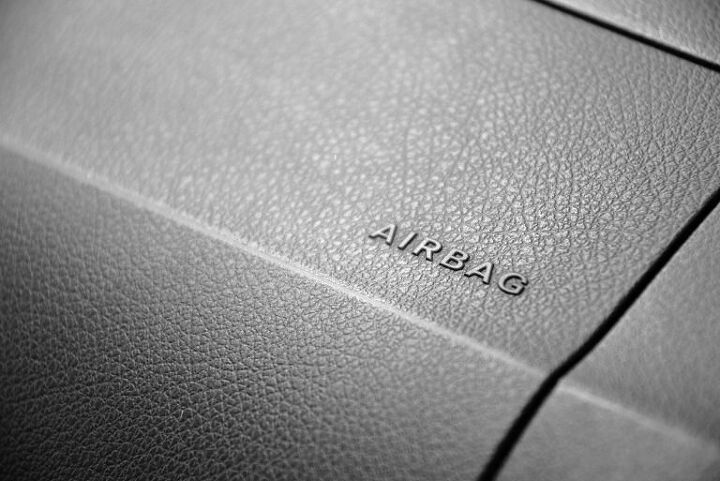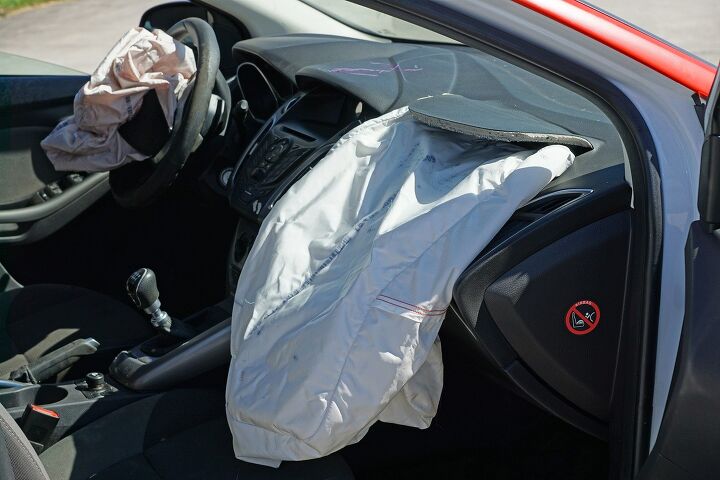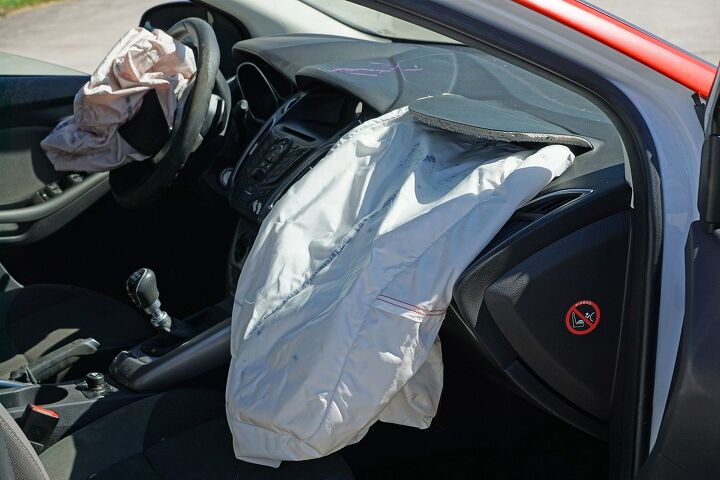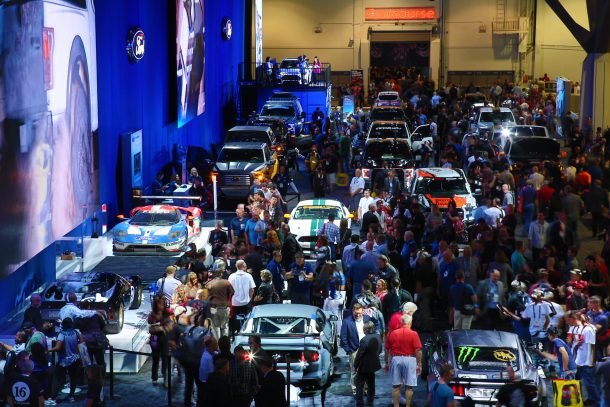#Takata
Takata Problems Force Recall of Ford Ranger (No, Not That One - the Old One)
Ford is recalling the Ranger. No, not the one they’re likely to show on stage at Detroit in about a month’s time. Rather, they’re calling back nearly 400,000 of the old Rangers. You know, the ones they stopped producing way back in the, uh, wow, 2012 model year.
In fact, the recalled units stem from much further back than that, with the company saying it will replace the airbags in 391,394 units of the 2004 through 2006 model-year Ford Ranger. Yes, Virginia, this is another problem related to Takata airbags.
Plus, we just wanted an excuse to run a photo of the old Ford Ranger.
Car, Tell: Quintet of Safety Suppliers Fined for Price Fixing
It appears the fictional JR Ewing isn’t the only one having to deal with cartels. Antitrust regulators in the EU have fined five safety equipment suppliers a combined 34 million euros ($40 million) for taking part in a scheme to fix prices for seat belts and airbags sold to Japanese automakers.
The cartels were allegedly supplying the safety equipment to Toyota, Suzuki, and Honda at inflated prices between calendar years 2004 and 2010.
QOTD: Ignoring That Recall?
Yesterday, young Mr. Posky brought us news that Honda has recalled a number of Odysseys for problems with their second-row seats. Now, reading into the details, it seems to be more of a user problem, rather than a design flaw. Nevertheless.
I’ve had my own share of recalls hurled in my direction, all of which were attended to with varying degrees of urgency. Our question for you: have any of your cars been recalled? How quickly did you bring them in?
Honda Will Recall Improperly Installed Replacement Airbag Inflators, Again
Honda Motor Co. is planning to install another round of replacement airbag inflators that have been improperly installed under an earlier recall. Unsurprisingly, these are Takata units and represent an expansion of an earlier recall from September that had also been incorrectly fixed. In both cases, the issue only affects passenger-side airbags.
The previous recall dealt with the 2008-2012 Accord, 2010-2012 Crosstour, 2006-2011 Civic, 2007-2011 CR-V, 2009-2012 Fit, 2010-2012 Insight, and 2009-2012 Pilot. The new fix will add another model to that list.
Takata Asks Court to Stall Airbag Victims' Lawsuits Against Automakers
Takata, the airbag supplier whose cost-cutting measures ended up killing people, issued a request on Wednesday to suspend lawsuits against automakers filed by those injured by its faulty inflators.
Without the injunction, Takata claims the rampant litigation would prohibit management from completing the sale of the company’s viable operations to Key Safety Systems for $1.6 billion, threatening the supply of air bag inflators meant to replace already recalled ones (which may include all previously repaired units, pending an EPA investigation).
Obviously, the injured parties want restitution. Plaintiffs’ lawyers call the proposed injunction “an abuse of the bankruptcy laws for the benefit of all of the world’s largest automobile manufacturers.” The fear is that Takata’s request will delay consideration of numerous lawsuits for several months to a year, which is a long time to wait when you’ve been wronged.
The Millions of Airbags Takata Replaced Could Still Be Extremely Dangerous
Takata, the parts supplier that furnished automakers with millions of extremely dangerous airbag inflators, was forced to issue another recall last week. Considering the hundreds of millions of units already recalled by the company, another 2.7 million is a drop in the bucket. But there’s a slight problem, as these newly recalled inflators are devices that have already been replaced.
In 2015, regulators specified Takata had until the end of 2019 to ensure its replacement airbag inflators were safe. With the “fixed” units now under scrutiny, automakers may be liable for the supplier’s wrongdoing as the millions upon millions of recalled inflators would need to be replaced for a second time. The current recall was prompted after the U.S. National Highway Traffic Safety Administration found the drying agent added specifically to combat the moisture that degrades the ammonium nitrate compound wasn’t effective.
“Absent proof that the other desiccated inflators are safe, they will also be subject to recall,” the NHTSA said in a statement last week.
End of the Line: Takata, Supplier of Millions of Explosive Airbags, Files for Bankruptcy
The impending bankruptcy of Japanese airbag maker Takata Corp. has been teased at and speculated upon for months. It was never a question of whether the parts supplier would go belly-up after causing the largest automotive recall in history, but how and when.
After furnishing dozens of automakers with airbag inflators what were, in essence, improvised grenades, the multi-million unit recall has left Takata with little recourse. The company has filed for bankruptcy protection in both Japan and the United States, announcing it will sell off the majority of its remaining assets to Key Safety Systems. One of the missing assets will be the equipment relating to the company’s nefarious ammonium nitrate airbag inflators.
The devices, subject to exploding with far too much force and spraying vehicle interiors with metal shrapnel, are responsible for a minimum of 16 deaths, hundreds of injuries, and the ruination of the company.
$1 Billion Apology: Takata Pleads Guilty as CFO Explains Its 'Deeply Inappropriate' Behavior
It’s been a long road to this point, but Takata’s CFO, Yoichiro Nomura, finally had the opportunity to plead guilty on behalf of the company to fraud. The company accepted a $1 billion settlement with the U.S. government yesterday as Nomura condemned Takata’s actions as “deeply inappropriate.”
U.S. District Court Judge George Steeh confirmed the previously agreed-to settlement against objections from lawyers for victims of Takata airbag inflator explosions, who claimed the criminal settlement mistakenly identified automakers as victims of Takata’s unlawful behavior.
Takata Axes Its North American Management as Airbag Recall Expands to More BMWs
Takata, the damned Japanese parts supplier with the exceptionally dangerous airbags, has lost the two top executives at its United States headquarters. According to their LinkedIn profiles, former North American President Kevin Kennedy and former Executive Vice President Robert Fisher are no longer with the company.
Meanwhile, BMW Group is recalling roughly 230,000 vehicles in the U.S. after discovering that some could have been outfitted with defective Takata Corp. airbag inflators during repairs.
Shocker: Takata Bidders Want Court Involved in Company's Turnaround
The remaining bidders for the ailing Takata Corporation are insisting on a court-mediated turnaround for the airbag supplier’s operations. Takata is in the midst of selecting a financial backer after incurring billions of dollars in costs to replace tens of millions of defective airbag inflators linked to a minimum of sixteen deaths.
However, Takata has stated it would much prefer an out-of-court process for its operations to ensure the uninterrupted supply of replacement inflators. Keeping the turnaround private also would also be a way for the founding Takata family to avoid the complete obliteration of the company’s share values.
Takata to Plead Guilty, Will Issue $1 Billion in Restitution for Deadly Airbags
Automotive parts supplier Takata Corp, along with three of its former employees, were charged by federal prosecutors with concealing the deadly defect of its airbag inflators.
The devices have been subject to an unprecedentedly massive recall and have have been linked to at least 11 fatalities in the United States. Takata has agreed to plead guilty to the charges against it and will pay $1 billion in restitution.
Ford and Honda Add Another Million Vehicles to Deadly Airbag Recall
Ford and Honda are putting more than one million additional vehicles down on the list of recall-worthy products with potentially deadly Takata airbag inflators.
Announced late on Tuesday, Honda Motor Company is recalling roughly 772,000 additional Honda and Acura vehicles in the United States for defective front passenger seat airbag inflators made by Japanese parts supplier. Not to be outdone, Ford is recalling over 816,000 units within the whole of North America for the very same reason.
AutoNation Reneges on No-recall Sales Promise, Blames Trump
Used vehicles with open recalls have begun rolling off AutoNation lots again, 16 months after the country’s largest new vehicle retailer promised an end to the practice.
The retailer, which has a half-billion dollar used vehicle expansion plan in the works, blames the about-face on the incoming Trump administration, with its CEO declaring that the legislative fight for mandatory used car recall repair is dead in the water.
GM: Our Takata Airbags Are Better Than Those Other Takata Airbags
A crop of General Motors pickups and SUVs left the factory with potentially deadly Takata airbags, but the automaker has won approval to delay their recall.
According to The Detroit News, the National Highway Traffic Safety Administration has allowed GM to defer repairs on 2.5 million vehicles so it can test the lifespan of the faulty parts. Naturally, there are conditions attached.
TTAC News Round-up: U.S. Marshals Raid on SEMA Nabs Parts Plagiarizers
Federal authorities busted numerous nefarious organizations for selling illicit auto parts at the SEMA show this week.
That, the automotive industry loses Martin Leach, endangering lives has led Takata to mull bankruptcy, and VW’s diesel emissions scandal continues as the company races for the finish line… after the break!



























Recent Comments